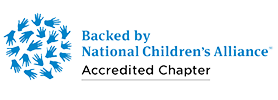May is Mental Health Awareness Month, which is an oppurtunity to highlight the importance of taking care of one's mental health as much as their physical health. NETCAC's Clinical director, Brooke Karr, explains her experiences working with others undergoing mental health challenges.
"In honor of Mental Health Awareness month, I would like to take a moment to shed light on this very important topic. From a personal standpoint, I have many family members that were impacted by mental health challenges, and I am sharing this because I believe that there is power in telling our stories.
According to the Center for Disease Control and Prevention, suicide is the second leading cause of death for youth ages 15-24 in the United States.
So many people are suffering in silence and believing the lies that they are alone, no one else understands, or they should feel ashamed of the struggles that they may be having. According to Brene Brown, “Shame needs three things to grow exponentially in our lives: secrecy, silence and judgement.”
In my work as a therapist, I have assisted many clients who were in crisis situations having suicidal thoughts or a suicide attempt after dealing with life stressors such as the death of a loved one, divorce, job loss or having received a serious physical health diagnosis. Many times, these clients never received a mental health diagnosis or treatment prior to being in crisis. It is essential to take a proactive approach rather than a reactive approach. This movement starts with education, a willingness to have difficult conversations about our mental health and advocating for increased access to mental health care.
It is important that we normalize having conversations about our mental health just as we would our physical health. Often when clients are struggling with the prospect of facing a mental health diagnosis, I compare it to the concept of a diabetic patient following a treatment plan established by their doctor to address their health issue. They might be required to take steps to manage their condition such as injecting insulin and checking their blood sugar regularly. Mental health conditions such as Major Depressive Disorder, Generalized Anxiety Disorder and Post Traumatic Stress Disorder also require treatment to be managed. These steps may include attending counseling to learn healthy coping strategies or seeing a psychiatrist for a medication evaluation.
There are often many fears around the meaning of having a mental health condition. I have heard clients say things such as, “It makes me weak if I need help,” “People have it worse,” or “I don’t want my condition to be held against me.” For some, their fears resemble what they were taught by parents or caregivers about what it meant to have intense emotions. If they were told “Suck it up,” “Be tough” or “Don’t cry or I’ll give you something to cry about,” it is reasonable to think that feeling sadness or allowing yourself to cry is not an option.
As Robert Frost once said, “The only way out is through.” It is beneficial to allow ourselves to acknowledge and express our emotions to allow them to pass. One step toward prioritizing our mental health is by maintaining a support system of loved ones and friends.
It is also helpful to engage in healthy activities to deal with stress such as physical exercise, enjoying time in nature, talking to a friend or loved one, journaling, participating in hobbies and interests, getting adequate sleep and nutrition and finding gratitude in life’s blessings.
At the Northeast Texas Child Advocacy Center, we offer free, grant-funded access to services for children and families affected by trauma and abuse in an eight-county area.
We offer child-led interviews by specialized forensic interviewers, family advocacy services to assist with support such as Crime Victims Compensation applications, local resources, school supplies, Angel Tree, and emotional support for parents. We also offer trauma counseling for children and caregivers affected by trauma or abuse to aid clients on their healing journey.
For more information on how we serve children and families in northeast Texas, contact us at 903-629-7588 or www.netcac.org.
To find further information about Mental Health Awareness month or resources for mental health support, please visit www.nami.org.
If you or a loved one are in crisis, thinking of harming yourself or others or are in imminent danger, please call 9-1-1.
The Crisis Hotline number, available 24/7, call or text 988 or call 1-800-273-8255 for support from a licensed mental health professional."








